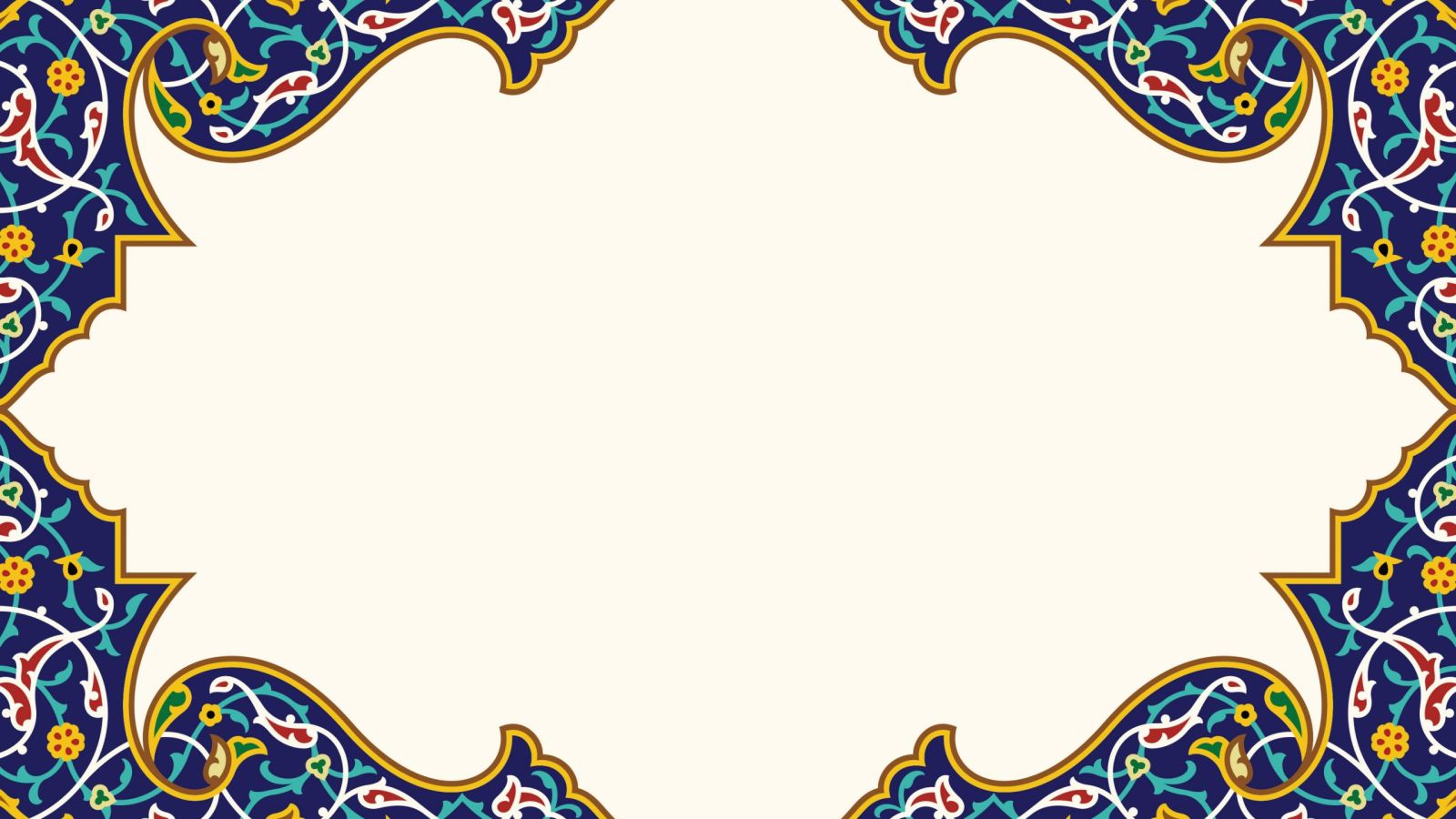Understanding Wealth and Poverty in Islām
Imām ʿAbd al-Raḥmān ibn Nāṣir al-Saʿdī


The goals, intentions, and policies of the creation with regards to wealth and poverty vary widely. They base these intentions on personal goals, not upon adherence to the truth or mindfulness of overarching, comprehensive, goodness. They have erroneously missed the truly beneficial path. As they have failed to restrict themselves to the guidance disseminated by the religion of Islām. Instead, they postulate a plethora of different ideas, then act in accordance with them, resulting in widespread evil. They have caused the occurrence of great dissension between those who claim to seek victory for the poor, the impoverished and the workers and those who despicably hold on to their wealth and contemptibly stow away their fortune. These people justify themselves with lengthy discourse, all of it representative of wrongful misguidance.
Allāh has guided the believers to the straight path encompassingly in all of their matters, and specifically in this issue. The laws of Islām—all praise be to Allāh—enlighten us as to the achievement of as much goodness as possible for both the wealthy and the impoverished. For Allāh has divinely decreed and commanded that the creation be upon different levels and stations—among them are the wealthy, and among them are the destitute. Among them are those of honourable standing, and among them are the contemptible. This is in connection to magnanimous and often hidden wisdom, mere discourse may fall short of truly depicting it. These classes of people have been firmly tied to one another, some given the ability to subjugate others, to where they find equitable goodness between them, and mutual need.
The Legislator has commanded firstly that they behave as brothers [rich and poor alike], not exploiting one another for personal gain. Rather, He guides both parties of people towards the fulfilment of their legislated duties with which true harmony is achieved and societal life established. He orders everyone in society to turn their attention to the encompassing, general good that benefits both classes of people. This is inclusive of physical acts of worship, non-profit projects, struggling against enemies and safeguarding from their treachery. Every member of society enacting this to the extent of their power and abilities. One person may act physically and financially, others may exert physical effort only, or financial effort only, others may be able to use their honourable standing to direct and guide others. Others may have the ability to learn or teach others. All working towards a singular goal, a shared and comprehensive good. The goal being sought is honourable, just as the means towards it is also deserving of veneration and honour.
Then, He has made zakāh obligatory in the finances held by the wealthy, the details of which have been elucidated in Islamic law. This money is spent with the goal of satisfying the needs of the impoverished, while also fulfilling religious goodness which then orders the affairs of both this life and the hereafter. Showing compassion and righteousness is then encouraged at all times and on all occasions, satisfying the need of the truly distressed is set as an obligation, just like feeding the truly starving, or clothing the unclothed, or fulfilling the needs of those in emergency situations. Just as spending money specifically upon family and children has been made obligatory, and that which is connected to them, as well as spending money on all contractual obligations that occur among people.
He has ordered them, in addition to all of this, to never put their trust in earning a living upon their own abilities and strengths. Nor that they should ever gaze upon what they have with contentment and complete tranquillity. Rather, their gaze should always be towards Allāh, in constant acknowledgement of His blessings, the ease that He has granted, and seeking aid from Him. That they constantly turn to Him in gratitude for that which He has blessed them with, granting them distinction with wealth and fortune. It is also obligatory that they observe the limits set for them with regards their wealth, careful to never completely engross themselves in opulence and extravagance that represents deficiency in exemplary manners, destroys their wealth needlessly, and disturbs their current circumstance. Rather, they should adopt the way clarified by the Most High:
وَالَّذِينَ إِذَا أَنفَقُوا لَمْ يُسْرِفُوا وَلَمْ يَقْتُرُوا وَكَانَ بَيْنَ ذَٰلِكَ قَوَامًا ﴿٦٧﴾
“And those, who, when they spend, are neither extravagant nor niggardly, but hold a medium (way) between those (extremes).”
(Al-Furqān, 25:67)
He has ordered them, in addition to this, to make their pursuit of wealth and aspects of this worldly life: honourable, upright and righteous. Such that they do not mar themselves with blameworthy, contemptible, earnings that are inclusive of interest, gambling, deception, cheating, embezzlement or swindling. Rather, their earnings are restricted to that which has been legislated according to just, equitable, Islamic law. Just as they are restricted to that which has been legislated in terms of physical worship.
They have been ordered to look upon the poor with mercy and compassion, showing them goodness. They are not to be hard-hearted towards them, severe, egotistical, holding prideful disregard for them, being insolent or arrogant. It is only in consideration of these wise directives that one’s religious fortune may reach the highest echelons of honour and esteem. Wealth in this way becomes an attribute of praise, a characteristic of perfection, elevation, and high standing. This is because it has been subjected to the discerning selection of Islamic legislation and has been purified by it. In doing so, one is distanced from the most contemptible aspects of wealth, and encouraged towards the attainment of its blessings.
As for the religion of Islām and its relationship to the poor, those who have not attained that which is personally beloved to them [of wealth] have been ordered to have patience and to be pleased with the divine decree of Allāh and His disposal of this affair. That they confess as to His wisdom and that multiple lessons can be derived from their current state, in addition to varying goodness as a result of it:
وَعَسَىٰ أَن تَكْرَهُوا شَيْئًا وَهُوَ خَيْرٌ لَّكُمْ ۖ وَعَسَىٰ أَن تُحِبُّوا شَيْئًا وَهُوَ شَرٌّ لَّكُمْ ۗ وَاللَّهُ يَعْلَمُ وَأَنتُمْ لَا تَعْلَمُونَ ﴿٢١٦﴾
“And it may be that you dislike a thing which is good for you and that you like a thing which is bad for you. Allāh knows but you do not know.”
(Al-Baqarah, 2:216)
This outlook removes the sadness in their hearts which would ultimately lead to laziness and inactivity. Then, He has ordered them to never look towards the creation to satisfy their needs or to remove their poverty. That they do not ask them for anything except in extenuating circumstances where they do not have a choice. Instead, they must turn to Allāh—alone, without partners—seeking that He alone relieves their state of destitution by means of the avenues He has established that relieves this state of poverty, leading to affluence. It is by taking on various types of work, and varying other means. Every person busies themselves with the means that suits them which is appropriate to their current state. In so doing, they free themselves from being duty-bound and owned by the creation. Instead, they habitually exercise the strength they have been granted and are active, constantly fighting laziness and listlessness.
Additionally, they must never allow envy towards the rich to enter their hearts because of the blessings which Allāh has chosen to grant them:
وَلَا تَتَمَنَّوْا مَا فَضَّلَ اللَّهُ بِهِ بَعْضَكُمْ عَلَىٰ بَعْضٍ ۚ لِّلرِّجَالِ نَصِيبٌ مِّمَّا اكْتَسَبُوا ۖ وَلِلنِّسَاءِ نَصِيبٌ مِّمَّا اكْتَسَبْنَ ۚ وَاسْأَلُوا اللَّهَ مِن فَضْلِهِ ۗ إِنَّ اللَّهَ كَانَ بِكُلِّ شَيْءٍ عَلِيمًا ﴿٣٢﴾
“And wish not for the things in which Allāh has made some of you to excel others. For men there is reward for what they have earned, (and likewise) for women there is reward for what they have earned, and ask Allāh of His Bounty. Surely, Allāh is Ever All-Knower of everything.”
(Al-Nisāʾ, 4:32)
He has ordered them to have sincerity in their work, their relationships with others, and in their craftsmanship. That they should not desire to expedite their sustenance by spending what they have been given on lowly frivolities which represent a means by which their religion and this worldly life are squandered. Rather, He has ordered them with two matters that will aid them in weathering the arduous nature of poverty:
- Being economical in ordering their living affairs
- Being satisfied with the sustenance they have been granted
This is because a small amount of provision coupled with strategic and wise saving makes that which is small appear plenty. Then, true satisfaction represents an inexhaustible fortune, and wealth in the absence of money. For how many of the poor have been guided towards being economical while being satisfied with that they have been given to the extent that they feel no envy for the opulent wealthy. Nor do they experience any dissatisfaction or uneasiness for the paltry amount of sustenance they possess. When the people of destitution are truly guided by the directives of this religion towards having patience and attachment to Allāh, freedom from being owned by the creation, and being serious and striving in honourable, beneficial work with complete satisfaction for the blessings of Allāh, the pressure and difficulties of poverty alleviate. All the while they continue to strive towards wealth, while putting their hopes in their Lord, eagerly awaiting the fulfilment of His promise, and fearing Him alone. For, indeed:
وَمَن يَتَّقِ اللَّهَ يَجْعَل لَّهُ مَخْرَجًا ﴿٢﴾ وَيَرْزُقْهُ مِنْ حَيْثُ لَا يَحْتَسِبُ ۚ وَمَن يَتَوَكَّلْ عَلَى اللَّهِ فَهُوَ حَسْبُهُ ۚ
“And whosoever fears Allāh and keeps his duty to Him, He will make a way for him to get out (from every difficulty). And He will provide him from (sources) he never could imagine. And whosoever puts his trust in Allāh, then He will suffice him.”
(Al-Ṭalāq, 65:2-3)
These religious lessons and directives from Allāh and His Messenger (صلى الله عليه وسلم) to both the rich and the poor represent goodness for both parties, while preventing them from engaging in evil and that which harms them. It results in their attainment of the most beautiful of all fruits for each category, both in this world and the hereafter. This is the only solution from their Lord—the Glorious—for the issue of wealth and poverty. All other ways aimed to address this problem represent nought but despair, distress, harm, and destruction.
And with Allāh alone belongs true guidance.
Source: Al-Dīn al-Ṣaḥīḥ: 8-10
Translated by: Riyāḍ al-Kanadī

















